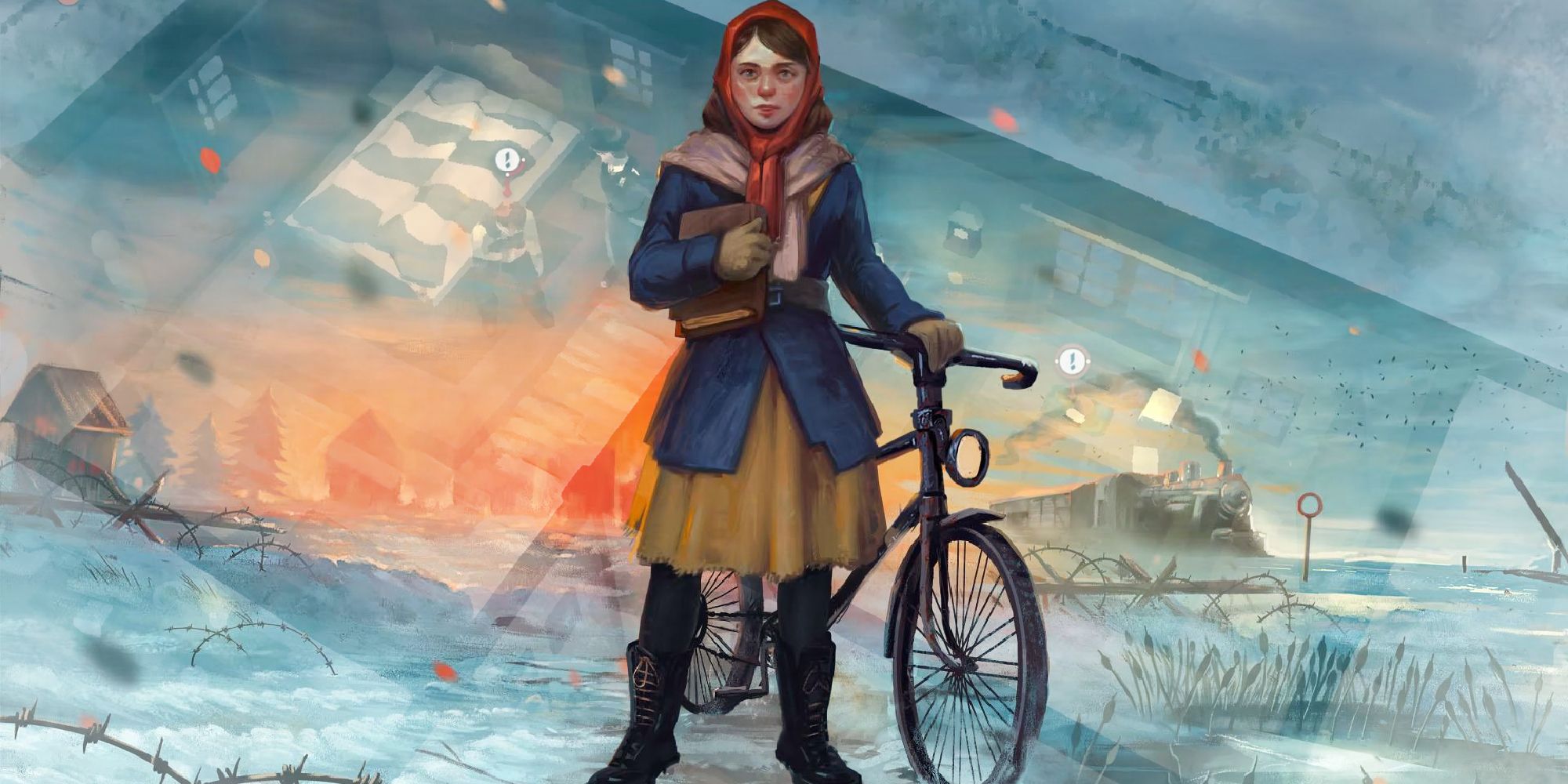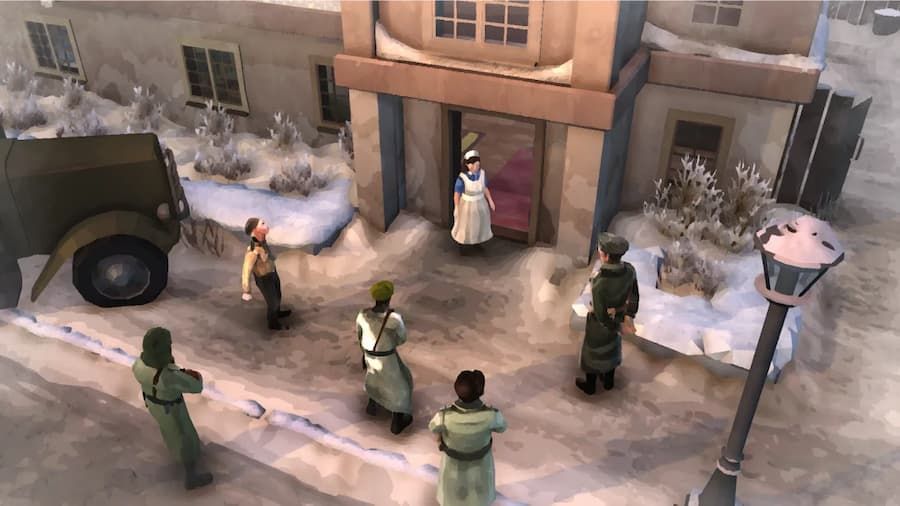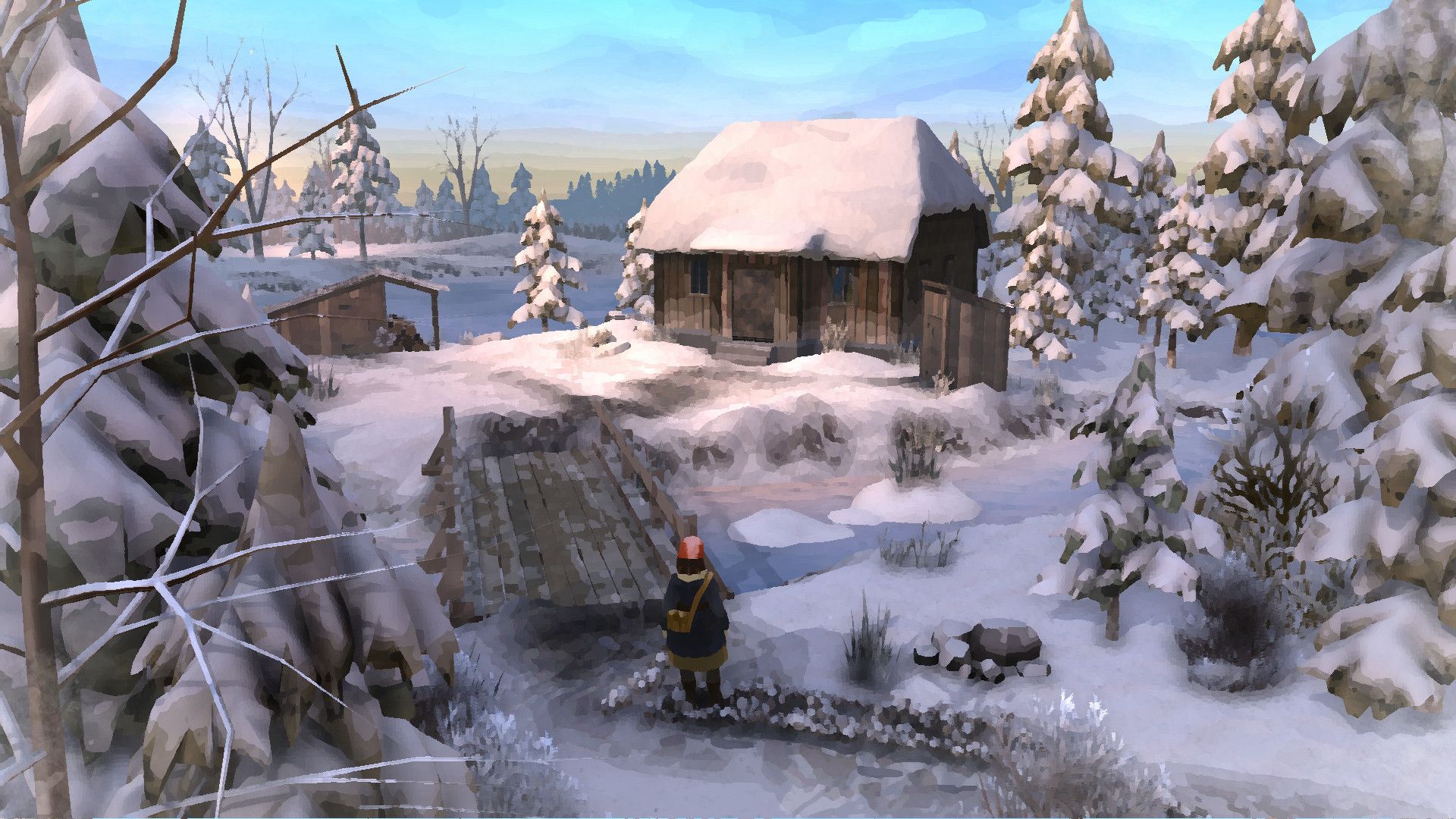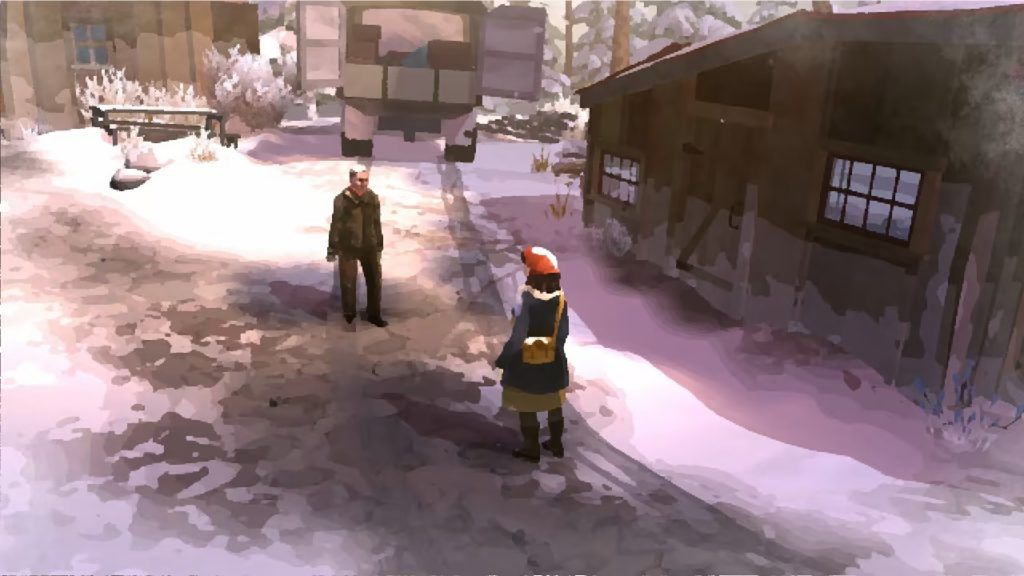Gerda: A Flame in Winter is a major departure for Don't Nod. Though there are differences in its back catalogue (Vampyr, Remember Me, and Life is Strange don't sit neatly together either), Gerda feels completely fresh not just for the studio, but for gaming as a whole. It sees you play as the titular Gerda during World War 2 when her Danish home is under Nazi occupation. When I previewed the game a month or so ago, I was struck by how well it captured the harsh yet casual tragedies of war for those away from the front line. I sent some questions off to Don't Nod to dig deeper into it, questions that were jointly answered over email by Shalev Moran, lead designer, and Hans Von Knut, creative director.
"It was worth [telling a war story from a home life perspective] if only for the fact that it is, as you say, a rarely-shown perspective," they tell me. "Most depictions of war in games, and in the mainstream of other media as well, have a heroic and masculine tone, focusing on combat where rivalry is clear and ethical questions are painted in stark colors. We wanted to bring a totally different angle - that of the civilians in the homefront, that work within the community and have to contend with the not-so-heroic reality of grey-area morality and tough decisions. Our current world is seeing more and more prolonged conflicts, where border or civil disputes are not resolved in a short explosive heroic war - but rather stretch over years and decades, leaving entire communities under varying degrees of occupation. We feel that taking a famous conflict like WW2 and exploring it from the eyes of the occupied civilians is an exercise that sadly will only be more relevant as time goes by."
This idea of a grey area fascinated me as I was playing the game. The devs make strong points - war is rarely black and white, and World War 2 is the war most people will call to mind. But it's also a war defined by the Nazis, one of the most evil and inhumane armies in European history. I was curious how they squared these two realities.
"We never endorse or excuse the actions of the Nazi regime and its collaborators, but dehumanization is exactly what racism and fascism do, and we’d rather not take a page from their book," they say. "So we make it a point to see everyone as fully human, no matter how foul their actions may be. While it’s tempting to think that writing those characters means 'getting in the mindset of a Nazi' and trying to see the world through their ideology, it’s not something we actually care for most of the time - as mentioned, we never seek to explain the Nazi regime. Instead, we looked at other aspects of their being, and sought parallels to human experiences we can empathise with: pride, duty, a sense of belonging, even national pride and patriotism that many of us are taught from a young age. Some of us in the studio did military service, and can channel those experiences too. We wanted to make a challenging game, for ourselves and for our players, and this approach was one of the bigger and most worthy challenges."
In my brief experience of the game so far, this challenge holds up. At one point we find a Nazi officer, implied to be a drug addict, stealing medicine. If we rat him out, we get the medicine back, but risk punishment. If we let him keep it, we might earn a sliver of gratitude, and it causes another Nazi to die in agony, with no medicine left to treat him.
One of the things I struggled with most in the game was not narrative, however, but mechanical. At one point, Gerda can give a scarf to an old man. I expected this would give me extra Sympathy points, as a reward, but instead I lost a point, having 'used' a Sympathetic action. Thematically I understand - war wears you down and makes you selfish, cynical. But as a gameplay experience, it made me want to hoard all of my Sympathy, and all my other emotions, like health potions. After speaking to the devs about this, it turns out it's supposed to be exactly as frustrating as I found it.
"We hope they struggle with it, as that was the intention!" they say. "Many games offer players [a chance] to act charitably as a stylistic choice - which may be fitting for power fantasies about tough-guy, lone-wolf type of heroes. But for people who are part of a community in crisis, the fact of the matter is that few good deeds go unpunished. Gerda, and people in situations similar to hers, don’t get to keep their hands clean - the realities of living under occupation and scarcity often don’t allow for simple good and bad choices. We tried to reflect that in both the story as well as in the RPG systems: actions have both immediate effects on the current challenge Gerda is facing, and long-term effects on stats such as her relations with certain people and factions."
Another frustration - again, apparently deliberate, which already has me warming to the game more - came via Gerda's diary. She keeps notes of her thoughts, and points are once more on offer. She gets different stat boosts depending on what she writes, which seemed to me to go against the narrative might of the story. That's the point though - if you're keeping a secret diary about the Nazi regime as they occupy your country, would you really just write everything you feel, or would you be more clever with your words in case it was discovered. More to the point, could you stomach currying favour with the Nazis even in your own private writing?
"We are intentionally looking to evoke that tension between the two modes of thinking - what I truly believe vs. what will advance my goals - that are often not aligned," the devs say. "We believe it is much more honest to the experience of people in crisis, who do not have the privilege of remaining pure-hearted. Every stance they take has a price. And we believe that this price is not only social, but also psychological - that you don’t get to completely separate how you feel from what you say and do. That is why Gerda’s Mental Energies change when she expresses an opinion in her diary. That is also why her relation to different factions shifts according to her actions even when there isn’t someone from that faction to witness it. We imagined Gerda’s relations system not as pure reputation but more like the Karma system in other RPGs, it represents Gerda’s closeness to a certain faction - she may get closer to them for strategic reasons, but she cannot help but be affected."
Gerda: A Flame in Winter launches September 1 on Nintendo Switch and PC




